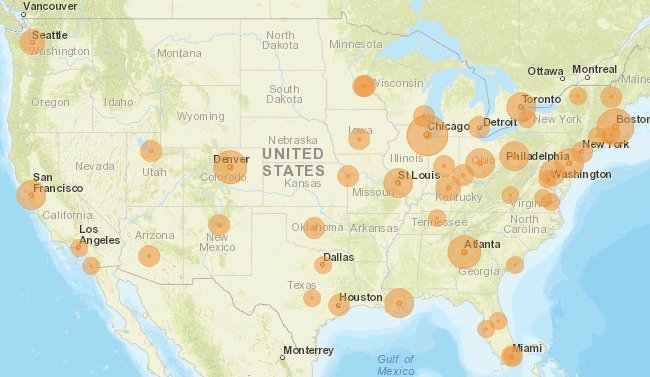The Richard A. Musgrave Prize was created in 1999 and is presented each year to the author(s) of the best article published in the National Tax Journal. The award is a tribute to Richard Musgrave, whose work throughout his luminous career was characterized by a powerful blend of analytical clarity, insight drawn from the historical record, and respect for the importance of administrative issues. With this award, the National Tax Association recognizes his many contributions to public policy theory, research, and practice.
Winners are selected by the journal’s Editorial Advisory Board on the basis of the degree to which their paper exemplifies the attributes of Professor Musgrave’s work — strong analytical underpinnings, rigorous argument buttressed by solid empirical evidence, respect for the importance of historical and institutional factors, and relevance for public policy. All refereed papers published in the March, June and September issues are automatically eligible for the award. For more information about the NTJ Richard Musgrave Prize, click here.
Recipients
| 2023 |
Alex Rees-Jones and Kyle Rozema, Price Isn’t Everything: Behavioral Response around Changes in Sin Taxes |
| 2022 |
Maggie R. Jones and James P. Ziliak, The Antipoverty Impact of the EITC: New Estimates from Survey and Administrative Tax Records |
| 2021 |
David Cashin and Takashi Unayama, The Spending and Consumption Response to a VAT Rate Increase |
| 2020 |
Taylor Cranor, Jacob Goldin, Tatiana Homonoff, and Lindsay Moore Communicating Tax Penalties to Delinquent Taxpayers: Evidence from a Field Experiment |
| 2019 | Jacob A. Mortenson, Heidi R. Schramm, and Andrew Whitten The Effects of Required Minimum Distribution Rules on Withdrawals from Traditional IRAs |
| 2018 | Trevor S. Gallen and Casey B. Mulligan Wedges, Labor Market Behavior, and Health Insurance Coverage under the Affordable Care Act |
| 2017 | Philippe Wingender and Sara LaLumia Income Effects on Maternal Labor Supply: Evidence from Child-Related Tax Benefits |
| 2016 | Alexander Gelber and Matthew Weinzierl Optimal Taxation when Children’s Abilities Depend on Parents’ Resources |
| 2015 | Tim Dowd, Robert McClelland, and Athiphat Muthitacharoen New Evidence on the Tax Elasticity of Capital Gains |
| 2014 | Kalena E. Cortes and Andrew I. Friedson Ranking up by Moving Out: The Effect of the Texas Top 10% Plan on Property Value |
| 2013 | H. Spencer Banzhaf and Wallace E. Oates On Fiscal Illusion in Local Public Finance: Re-examining Ricardian Equivalence and the Renter Effect |
| 2012 | Richard V. Burkhauser, Jeff Larrimore, and Kosali I. Simon A ‘Second Opinion’ on the Economic Health of the American Middle Class |
| 2011 | Wen Wang, William D. Duncombe, and John M. Yinger School District Responses to Matching Aid Programs for Capital Facilities: A Case Study of New York’s Building Aid Program |
| 2010 | Katie Fitzpatrick and Jeffrey P. Thompson The Interaction of Metropolitan Cost-of-Living and the Federal Earned Income Tax Credit: One Size Fits All? |
| 2009 | Sara LaLumia The Earned Income Tax Credit and Reported Self -Employment Income |
| 2008 | Michael Lovenheim How Far to the Border?: The Extent and Impact of Cross-Border Casual Cigarette Smuggling |
| 2007 | Roger Gordon and Young Lee Interest Rates, Taxes and Corporate Financial Policies |
| 2006 | Nathan B. Anderson Beggar Thy Neighbor? Property Taxation of Vacation Homes |
| 2005 | Michael J. Brunetti The Estate Tax and Charitable Bequests: Elasticity Estimates Using Probate Records |
| 2004 | David A. Weisbach Taxation and Risk-Taking with Multiple Tax Rates |
| 2003 | Jonathan Gruber and Peter Orszag Does the Social Security Earnings Test Affect Labor Supply and Benefits Receipt? |
| 2002 | Donald Bruce Taxes and Entrepreneurial Endurance: Evidence from the Self-Employed |
| 2001 | Jan K. Brueckner and Luz A. Saavedra Do Local Governments Engage in Strategic Property Tax Competition? |
| 2000 | Harry Grubert and James Mackie Must Financial Services Be Taxed Under a Consumption Tax? |
| 1999 | Timothy J. Besley and Harvey S. Rosen Sales Taxes and Prices: An Empirical Analysis |
![National Tax Association [ National Tax Association ]](https://ntanet.org/wp-content/themes/nta-custom/library/images/nta-whitebg-web-top.svg)


![National Tax Association [ NTA ]](https://ntanet.org/wp-content/themes/nta-custom/library/images/nta-white-logo.svg)